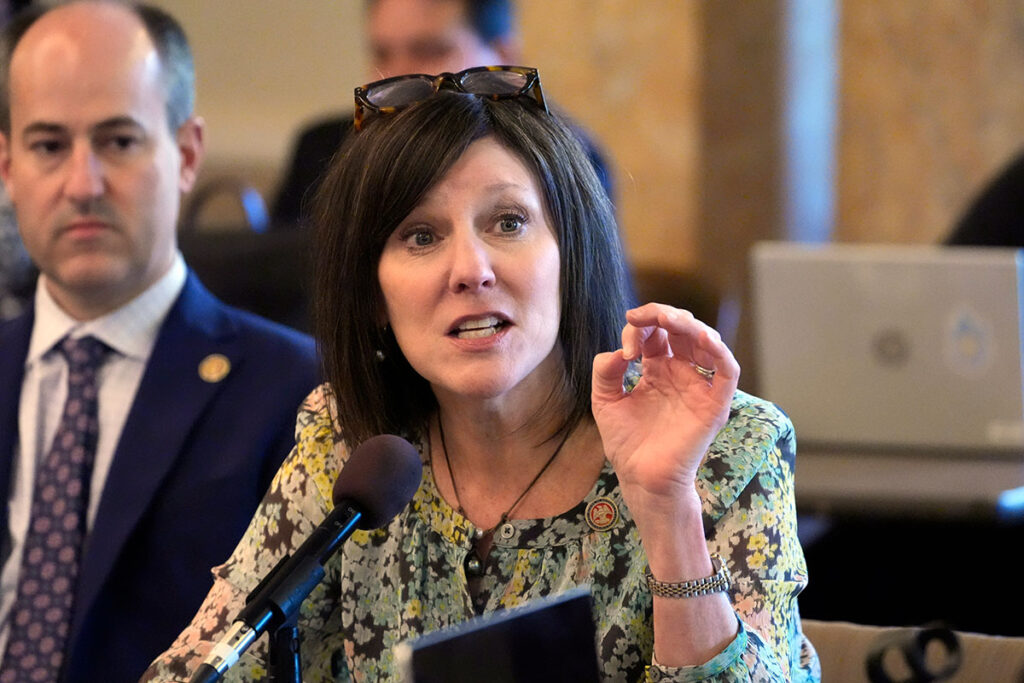JACKSON, Miss. (AP) — After years of refusing to expand Medicaid, some of Mississippi’s Republican leaders now say they are open to the policy—if they can require new enrollees to have a job. That approach could hinge on presidential politics and an ongoing legal battle in Georgia.
In a statement to The Associated Press, Lt. Gov. Delbert Hosemann said Mississippi must consider all options to improve its labor force participation rate and poor health outcomes, both of which are among the worst in the country. Hosemann said Georgia, the only state that requires Medicaid recipients to meet a work requirement, could be a model for Mississippi.
“We need healthy working Mississippians,” Hosemann said. “Georgia’s successful implementation of a work requirement cleared a path for this conversation in Mississippi.”
Georgia and Mississippi are among 10 states that haven’t expanded Medicaid eligibility to include people earning up to 138% of the federal poverty level, or $20,120 annually for a single person. In 2023, Georgia created a less generous program that offered expanded coverage to adults earning up to 100% of the poverty level, or $14,580 for a single person.
Georgia’s program only offers expanded coverage to able-bodied adults if they are working, volunteering, studying or in vocational rehabilitation. The state developed its plan after the Trump administration permitted 13 states to impose work requirements on some Medicaid recipients.
The Biden administration revoked all those waivers in 2021, in part because of the COVID-19 pandemic. The Centers for Medicare and Medicaid Services said people should not face roadblocks to getting health care. But Republican Gov. Brian Kemp’s administration won a federal court fight in 2022 to preserve Georgia’s plan, partly because it applies to new enrollees and not current Medicaid recipients.
The program is set to expire at the end of September 2025. Earlier this month, Georgia sued the Biden administration to try to keep its plan running until 2028.
A bill that would tie a work requirement to Medicaid eligibility has also passed the South Dakota Senate and is awaiting a House hearing.
Even if a Republican is elected president in November, new Medicaid waivers granted by CMS could face legal challenges, said Robin Rudowitz, director of the Program on Medicaid and the Uninsured at KFF, a health policy research group.
“While former President Donald Trump would likely look favorably on work requirements, he has also vowed to try again to repeal and replace the Affordable Care Act, which would include Medicaid expansion,” Rudowitz said.
Georgia’s narrow coverage expansion with a work requirement waiver has seen limited Medicaid enrollment, far short of the coverage levels that could be achieved if the state adopted the full expansion allowed under the ACA, Rudowitz said. That is because most Medicaid recipients are either working or face barriers to work, which limits enrollment, she continued.
Georgia’s Republican House speaker, Jon Burns, signaled at the start of this year’s legislative session that Republicans may be open to expanding Medicaid further. But GOP lawmakers on Tuesday indicated that the idea was likely off the table in 2024.
Mississippi House Speaker Jason White, also a Republican, said in an interview that the state has shown it will refuse to expand Medicaid without a work requirement.
“I think we’ve proved to CMS and the folks in Washington that we will be stubborn and not do it,” White told The AP. “So I think they would be more amicable to listen to the idea of, hey, we’ve got a maybe a little different model here.”
Debate over Medicaid expansion has stalled for years in Mississippi because of opposition from Republican leaders, including Gov. Tate Reeves, who said Tuesday that he still opposes expansion and shares Trump’s disdain for Obamacare.
If lawmakers vote to expand Medicaid, Reeves would likely veto the bill. Legislators could override his veto with a two-thirds vote from both the House and Senate.
Mississippi lawmakers are also considering the impacts of a financial incentive for expanding Medicaid provided by Congress in the American Rescue Plan. The bonus helped with the passage of Medicaid expansion in North Carolina. In Mississippi, it would pay for the program for about four years, even without accounting for other cost offsets like increased tax revenues, House Medicaid Committee Chairwoman Missy McGee, a Republican, said at a Tuesday legislative hearing.
Morgan Henderson, a data scientist at Hilltop Institute, a health-care research organization, said Medicaid expansion would be an economic boon to Mississippi, but every state has a unique program.
“If you know one state’s Medicaid program, you know one’s state’s Medicaid program,” Henderson said.
AP reporters Emily Wagster Pettus in Jackson, and Sudhin Thanawala and Jeff Amy in Atlanta contributed to this report.










